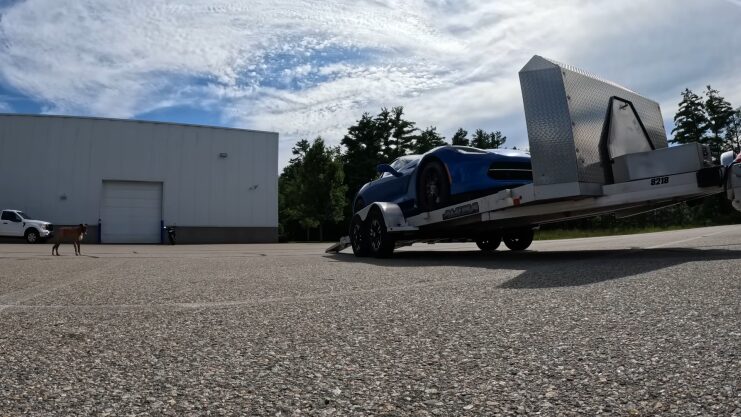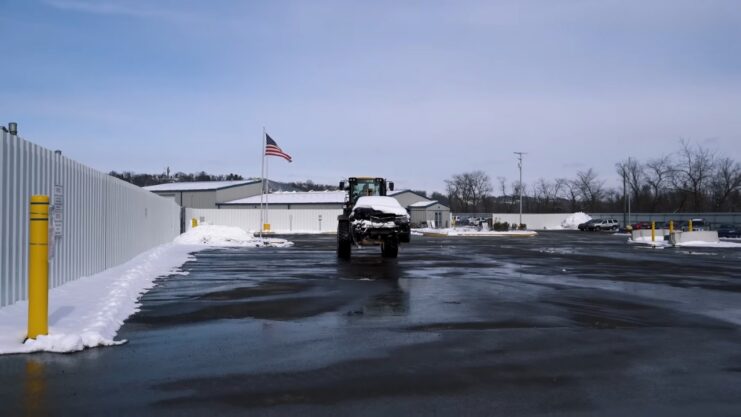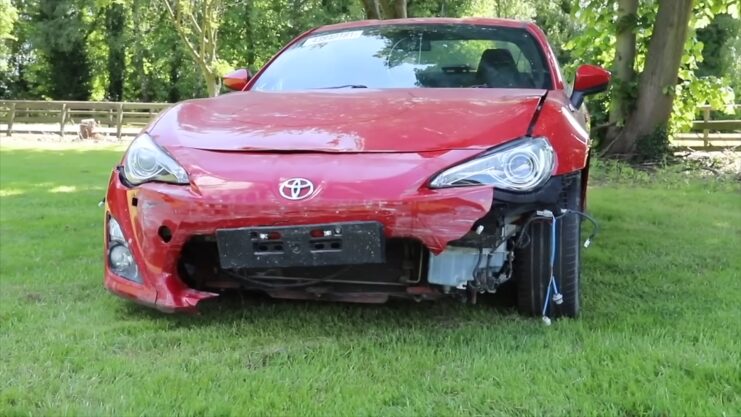When considering the sale of a salvage car, it is essential to understand its value in the current market. A salvage title is assigned to vehicles that have been deemed a total loss by an insurance company due to damage from an accident, flood, or other catastrophic events.
These cars can be sold, and the prices they fetch depend on various factors such as the extent of the damage, the car’s make and model, and its age. Making the calculation consists of several steps.
When you sell one of these, expect to earn less than the value since buyers account for the risks and costs associated with repairing and re-certifying the vehicle.
Key Takeaways
- Salvage titles are given to cars considered a total loss but can still be sold.
- The value of a salvage car is a percentage of its pre-damage market value.
- Selling a salvage vehicle typically yields less than its calculated salvage value.
Selling Salvage Cars

When selling a salvage car, your primary considerations should be determining the price and choosing the most suitable sales avenue to maximize your return. Your car’s price vastly differs from its pre-accident market value.
Trade-ins and Private Sales
The salvage value of your car is typically a percentage of its pre-damage market value. For example, if insurers use 80% and your car’s price is $7,000, then its salvage value might be around $5,600.
Trading at a dealership often results in a lower offer, as dealerships consider the cost of repairs and the car’s diminished resale value.
Selling directly to private buyers may yield a higher price compared to trade-ins. Utilizing online platforms or classified ads are common way to connect with private buyers. You can use vehicle valuation tools like Edmunds to estimate the retail price and adjust your asking price accordingly.
The Marketplace
The value of a salvage car in the marketplace can be influenced by current scrap metal prices, the make and model of the vehicle, and its condition. Scrap car prices depend on materials such as steel, copper, and aluminum. If you are interested in selling a scrap vehicle online, it is possible through sites like Autobidmaster.
While the retail value of a car represents its worth in a pre-owned vehicle market under typical circumstances, the retail price after a salvage title is significantly reduced. To establish a competitive retail price, start with standard pricing guides and then deduct an amount that accounts, usually ranging from 40% to 50%.
Learning about Titles

Being aware of salvage titles is essential if you’re considering the purchase of a car that has one. It affects your car’s value, legality, and insurability.
How to Define it Properly?
A title indicates that an insurance company has determined a vehicle to be a total loss. This usually happens when a car has sustained damage so extensive that the cost of repairs exceeds a certain threshold of the car’s pre-damage market value, commonly about 75%.
The Impact Titles on Car Value
When a vehicle receives one of these, its price typically drops to 20% to 40% less than its value with a clean title. To estimate this depreciation, you can consult resources like Kelley Blue Book (KBB) or the National Automobile Dealers Association (NADA).
Here’s how:
- Look up the car’s current price if it had a clean title.
- Calculate 40%-50% less than the market value for an approximate price.
Legal Aspects
Once the vehicle is put in this category, a car must undergo necessary repairs before it’s deemed safe for the road. After repairs, a vehicle inspection is required, which if passed, may result in a change of the title to a rebuilt title. The specifics of this process vary by state, influencing the legal operation and registration of the vehicle.
What Are the Factors that Can Influence It?

The price is not determined arbitrarily. It’s grounded in a variety of concrete factors ranging from the car’s condition to its parts availability. Understanding these can give you a clearer sense of what to expect financially.
How to Establish Value?
To determine the value, start by finding out its current price if it had a clean title. This can be done using resources like KBB or NADA. Then, apply a percentage, typically between 40% and 75%.
For instance, a Toyota Camry, which falls into the category of mid-size cars, will often have a different percentage applied than smaller vehicles due to market demand.
Cost of Repairs and Parts Availability
The cost of repairs plays a critical role. You’ll need to calculate the repair cost, which must include both labor and parts. The availability of parts for your make and model affects this cost, as rare parts can be more expensive.
For many vehicles, especially popular ones like a Toyota Camry, parts are more readily accessible and might be less costly compared to those for less common models.
Make, Model, and Age
Your car’s make, model, and age are significant factors. Generally, newer cars with lower mileage will retrieve a higher salvage value. The make and model impact the parts’ demand: a car with high demand in the used parts market usually retains more value. The age of your vehicle influences the depreciation aspect, which is important when appraising any car, not just those with a salvage title.
FAQs

Is Salvage Value Positive or Negative?
Typically, the price is a positive figure, representing the residual worth of a vehicle after it’s been declared a total loss. It quantifies the possible return from selling the damaged car as-is or for parts.
Is It Worth It to Buy a Salvage Car?
Buying a salvage car can be worth it if you’re looking for a project vehicle, need parts at a lower cost, or are experienced in car repairs. However, you should carefully weigh the potential savings against the effort and cost of repairs required to make it roadworthy.
Can You Insure a Salvage Car in The UK?
In the UK, you can insure it, but options may be limited. Once repaired and passed through a Vehicle Identity Check (VIC), it’s issued a new logbook and can be insured.
What Is the Largest Car Scrapyard in The UK?
Motorhog, also known as CarTakeBack, is widely recognized as the largest car scrapyard in the UK. They have multiple locations across the country, offering extensive services ranging from vehicle salvage to the sale of parts.
Summary
When considering the purchase of a salvage car, it’s essential to understand its potential value. Typically, these sell for 20% to 40% less than their market value with a clean title. This significant discount reflects the car’s history and the potential risks involved.
A VIN check reveals the vehicle’s history, providing valuable insights into past accidents, title issues, or other important details.
Weigh the initial savings against these considerations. If you possess mechanical expertise or a trusted mechanic, and you’re willing to accept the higher risk for potential rewards, a salvage car could be a suitable option.

